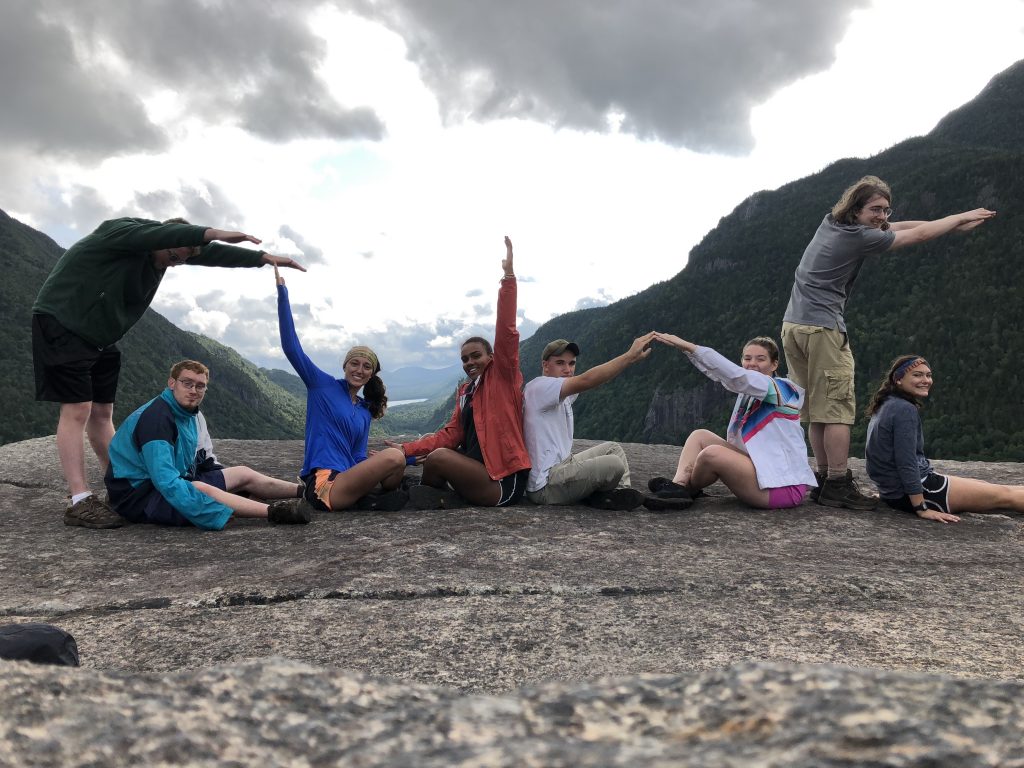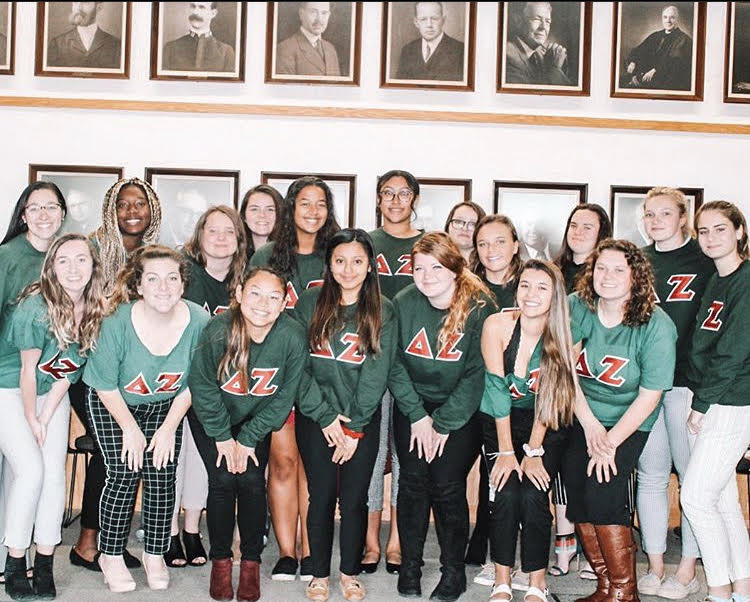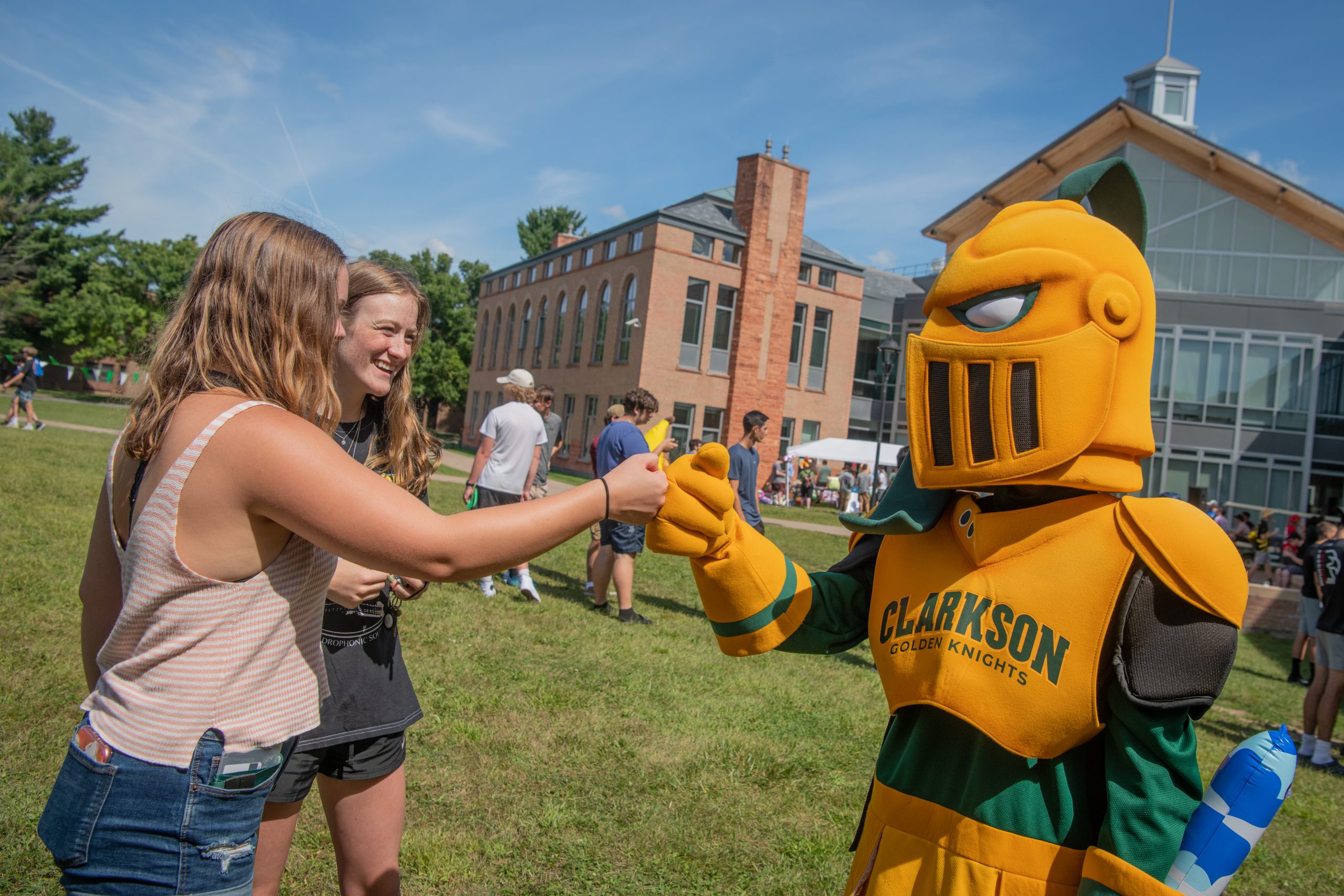Every spring, Clarkson University hosts Parent-to-Parent panels during accepted students events so that the parents of prospective and incoming Clarkson students can ask questions of current Clarkson parents. The following is a combination of the questions that were asked and answered during these events in Spring 2023. Along with a panel of several current Clarkson parents, Brian Grant, vice president of student affairs, served as moderator and was also on hand to answer questions.
This series of questions and answers is all about the transition from high school to college and campus life at Clarkson! We’ve created another edition focused on residence life and dining here. Now we’ll jump right in with questions and answers!
Q: What is the transition from high school to college like for Clarkson students?
Clarkson Parent: I’ll say that our son transitioned very well coming in here. The impression that I got is that he got involved in things he had never done, like laser tag on Friday nights, until coming here. Even if your student is one that never was good at calling up a friend saying, “Hey, let’s go out.” He was comfortable joining in and that’s what it sounds like he’s found here. And so here he’s just been able to sort of settle and live with that.
Brian Grant: Our goal is to work with the students over the summertime. So that when they walk into this room, they’re all right. So now they’re grouping together, doing things with their residence halls. Finding their outlets and fun activities to re-energize. Your floormates are the ones to sort of push you to go do things. So I think at a school like Clarkson, it’s all about the interactions.
I always tell families at the beginning of the orientation, “I don’t know how many of you this is your first child going off to college, but if you don’t hear from your student, I know we’re used to seeing them every day, talking everyday or texting. If you don’t hear from them for a week, that’s a good thing. That means they are just getting involved.”

Q: Can you tell us about Pre-Orientation Trips?
Brian Grant: The Outing Club hosts pre-orientation trips and there are different levels to that. They will run these trips into the Adirondacks and they’re sort of the extreme, novice, and even lower-level trips. Outing Club isn’t the only group hosting these. Other clubs like Ultimate Frisbee, student government, and Pep Band host Pre-O experiences too.
Q: I’ve heard there are refresher courses. Can you talk about what those are all about?
Brian Grant: The way we do the refresher category is we have a ten-day crash course before classes start. Once the semester starts, students also have to do the ABC test, which basically is just another precursor to get them to make sure they’re in the right calculus level class.
When I came here as a student, it was a rite of passage. Every engineering student took physics, calculus, and chemistry whether they were prepared or not. I wasn’t. Now what we do, we use these exams in these different areas to put students at the right calculus level. So maybe you need more calculus before you take your test. It’s just a sequence, it becomes a little bit different. So these summer days and the ABC exams are big to ensure that students are right where they should be and get the support mechanisms to keep them moving through on our timeline.
This summer we are also offering refresher courses for computer science, business, and chemistry for students who want a boost in those areas too. Business, math, and chemistry are going to be open to all students from any major. Computer science will be exclusive to students who were accepted into that program specifically.
Q: Related to the Counseling Center, what medical professionals are on staff?
Brian Grant: We contract with Canton Potsdam Hospital. We have our health and counseling center on campus that is certified by the hospital. Honestly, what the hospital has done in terms of bringing in specialty doctors is that we have turned it from a small rural hospital to a hub. It is also really nice that in the past if there was a serious issue they would be sent to Syracuse or Vermont, now there is more support they can receive at Canton-Potsdam. But having that affiliation with the hospital right in the ERC, students are able to do certain things and receive care like shots and basic checkups.
Q: What sort of train or bussing options are there to campus?
Brian Grant: We do have Trailways buses on campus every day. So there are sources here. And what we also find is that many of our students bring cars, students can bring three cars. Many students find ride partners and share information and resources on finding rides. They’re pretty self-reliant in figuring out how to get where they need to go. They’ll split gas and various things like that as well.
So Trailways come down on campus twice a day and then I know in the past when it goes to the Syracuse airport. We also coordinated our own local bus system to help students get around the town or local area.
Q: What are sports like here, who follows them?
Brian Grant: We have Men’s and Women’s Division I hockey which is life or death. All our other NCAA sports are at a division three level and then we have a very, strong intramural club program. So we have a club football team, a club baseball team, a club hockey team, and others. But then the intramural program is all year long because we use our facilities, Walker Center, or on-campus events.
If you look at the overall GPA of our athletes, it’s higher than the university average. So that tells us we have dedicated, and very focused student-athletes.
Q: Do you have any music, vocal ensembles, or drama clubs?
Brian Grant: Yes! So the theater club is putting on Spamalot here within the next few weeks. They do two productions a year. We have a Pep band that plays at all the hockey games. The louder the better, we also have an orchestra and a jazz band on campus, and we are extremely fortunate for those activities.
We also have what we call associated colleges, so there are four colleges within 20 minutes, and Potsdam has a school of music, which is one of the best in the area and in the nation. We have such a connection that students can cross-register. We’ve had students here who have actually tried out for the orchestra and we think they’re competing with students for this in their careers.
We have an acapella group the golden notes and a dance ensemble as well. So the arts community we have our TV station, radio station, writers, artists, musicians, and musicians with theater programs. So the arts are a very big part of campus!
Q: What percentage of students is fraternity sorority?

Brian Grant: It’s about 10% of our population. We have four houses that are located on campus called theme houses. Then we also have off-campus organizations. The sororities, and fraternities that are recognized, are held to high standards of positive community engagement within the campus community. Their priorities of volunteering bring so much to our campus.
Q: On a regular weekend, do most students stay on campus or go home?
Clarkson Parent: I mean, they know that once they get here and they see the rigorous education, there are opportunities to go skiing, to go to different things. Clubs have outings. It’s wonderful. You know, they can balance that with their schoolwork. I don’t think a lot of kids really want to go home. Some of them if they live on the West Coast, like you mentioned, they’re not going home for the weekend. I think it’s a great place to be on the weekend.
Brian Grant: It’s probably a more active campus on the weekends, just the spare time, and we in terms of residents and students are making sure that there are concerts, open mic nights, and things like that. Free admission for students to our D1 hockey team as well. So it is not a 4:30 on a Friday mass exodus. There’s plenty for them to do.

